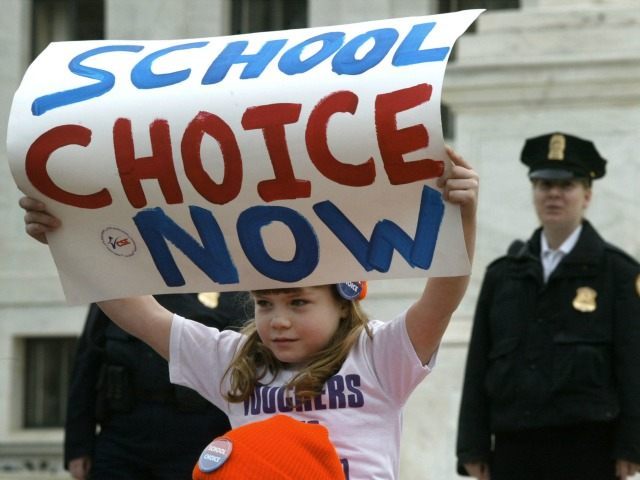Late last week, and just in time for School Choice Week, Senator Ted Cruz (R-TX) introduced a universal education savings account (ESA) bill for all of the District of Columbia’s children. The program allows parents, regardless of income or background, to take control of the dollars the District spends on their children’s educations and create customized educational plans to suit the needs and strengths of the individual student.
If the bill passes and is implemented, D.C. will join five states – Arizona, Florida, Tennessee, Mississippi and Nevada – that currently have laws on the books allowing parents access to this revolutionary program. In Arizona, where parents have had access to ESAs since 2011, a study showed about two-thirds of parents use their ESA accounts as a voucher to send their kids to private schools, and over a third are using the program to customize their children’s educations. Parents have brought tutors into their homes, sent kids with special needs to cutting-edge therapy programs, enrolled them in individual online or community college courses, and created combinations of opportunities that work best for their children. And because the programs are so new, the possibilities of empowering parents to make educational decisions are just starting to emerge as parents find the best ways to best educate their children.
In the federal district, where the public school system regularly ranks at or near the bottom in proficiency, safety, and graduation rates, and housing is pricey, the area in which parents can afford to live frequently determines the quality of education their children receive. While a robust charter school sector and the D.C. Opportunity Scholarship Program have provided some parents with better choices, long waiting lists and the thousands of families turned away suggest the demand for quality educational options in the District is not being met. Parents have gotten so desperate that a family of police officers, the Hills, resorted to faking their address to enroll their children in a better school, and the District is now suing them for over $200,000 in tuition and penalties.
Education savings accounts are “the next generation” of voucher and tax credit scholarship programs, allowing parents – who know their children best – to truly take charge of the educational dollars the public spends on their children. Soon, all D.C. families may have to opportunity to take advantage of the new and exciting opportunities that education savings accounts offer.
Inez Feltscher is the Director of the Education and Workforce Task Force at the American Legislative Exchange Council. You can find her on Twitter at @inezfeltscher and @ALEC_states.

COMMENTS
Please let us know if you're having issues with commenting.